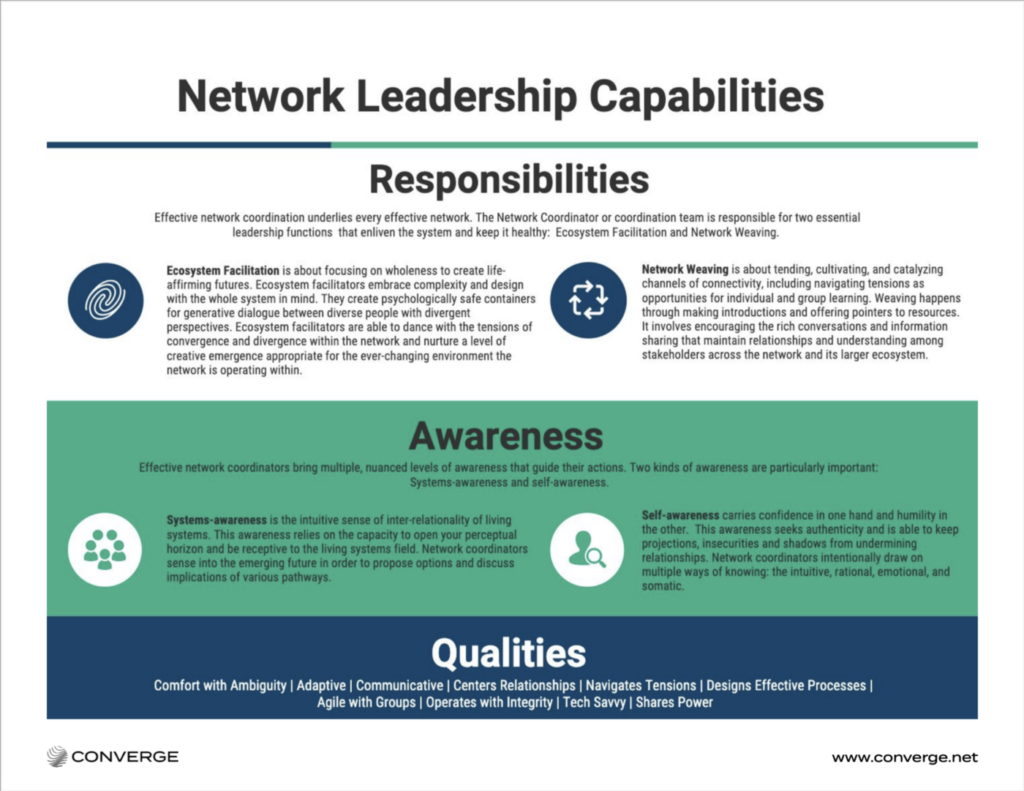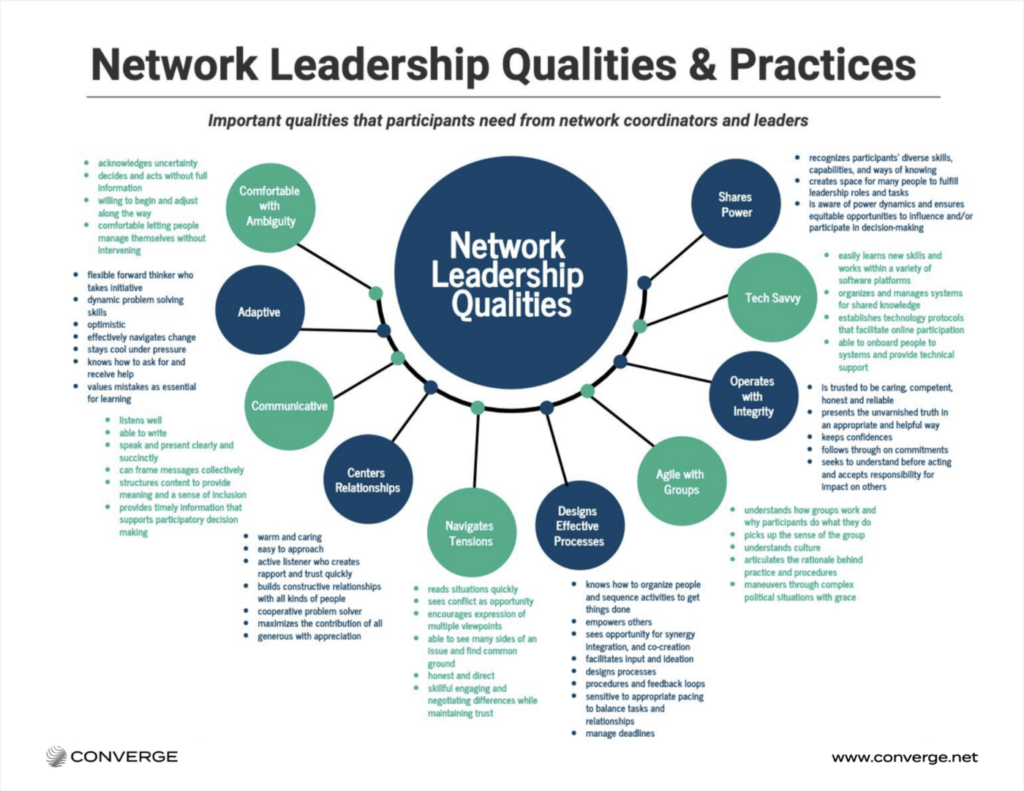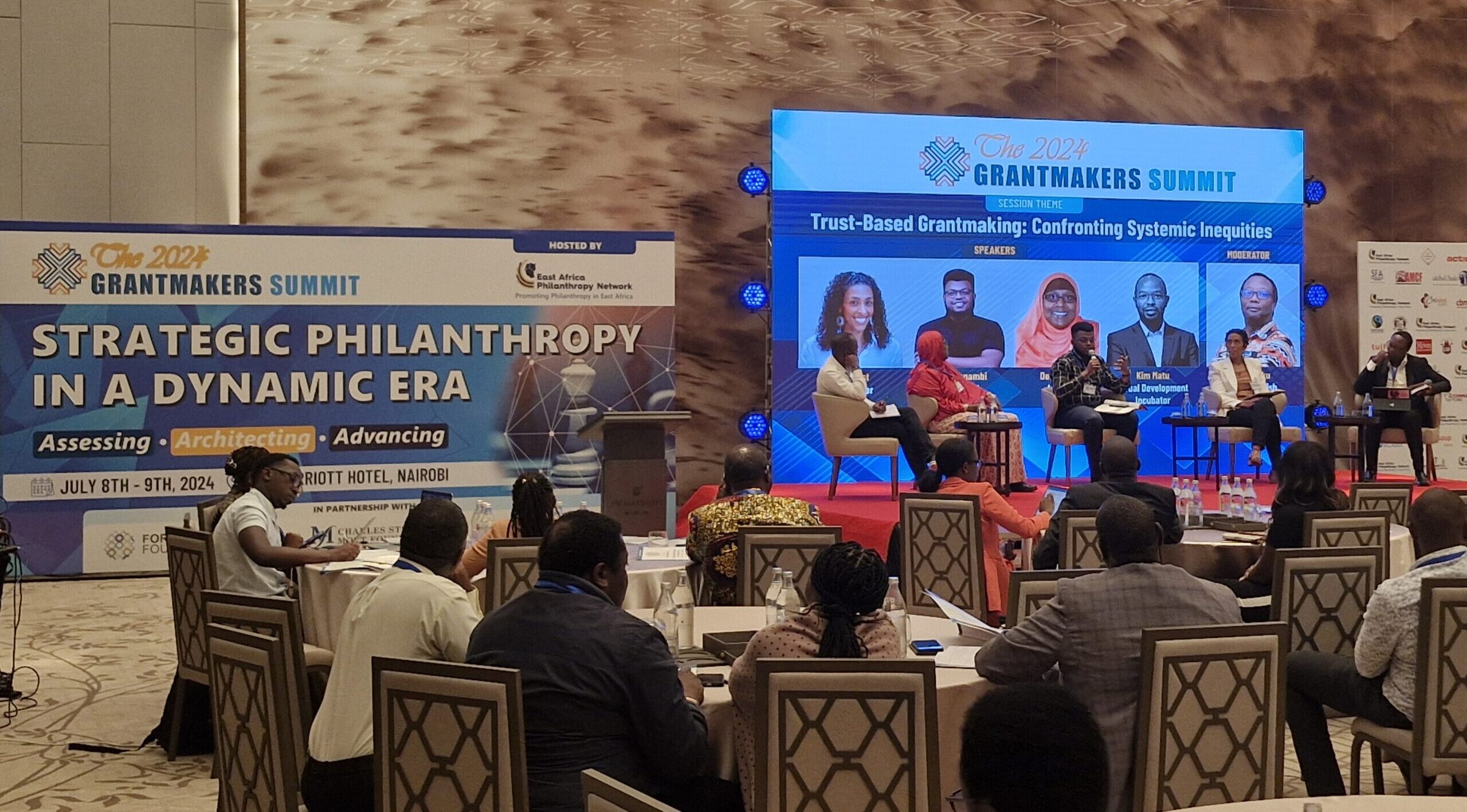
Guest post by Converge: So You Want to Hire a Network Coordinator
View this guest post in its entirety at Converge.
Article by Carri Munn and Elsa Henderson. Original artwork by Mari Pavanelli
Impact networks are complex living systems, made of many interacting people, organizations, and ecosystems. In contrast to traditional organizations with linear processes and standard operating procedures, networks are dynamic, highly interconnected, and quite variable. To live into their potential, networks require a different kind of leadership that is focused on weaving connections and coordinating learning and action.
In this article, we’ve drawn upon our experience as network practitioners, to describe the role of network coordinators and share some ideas for a successful hiring process. To hire for network leadership, we invite you to bring a relational mindset to the interview process, one that focuses on seeing connections and emphasizes trust rather than control. Keep in mind that the network coordinator role is significantly more nuanced and strategic than many people assume. To find a coordinator who is a good fit, the search process will likely need to include opportunities with prospective candidates to build rapport, envision them in action with real world scenarios, and assess their cultural agility — the ability to work across differences.
Converge is a network of consultants devoted to cultivating impact networks. We frequently support the process of hiring network coordinators for new and existing networks. Since 2013 we’ve worked with over 60 networks around the world. The purposes of the networks we’ve collaborated with span a wide range of disciplines, including science communication, impact investing, advancing the SDGs, and protecting migrant rights, and providing equitable economic opportunity, and environmental conservation. We follow the patterns across networks to uncover and share learnings from our practice that contribute to the collective wisdom in this emerging field.
The role of the network coordinator
The network coordinator is the one who wakes up thinking about the network. Like a gardener, they are constantly tending to the ‘soil’ and responding to changing conditions within and around the network. In the same way, the gardener supports the plants to produce a healthy yield, the network coordinator focuses on supporting the motivations of the participants, connecting people with each other, and fostering collaborations across the network. Rather than “leading the charge” and directing others, the network coordinator often works behind the scenes creating the conditions for group flourishing.
While the network coordinator is often viewed as an admin position or a secretary for the network, our experience has shown otherwise. We see the network coordinator as a senior-level position with two primary responsibilities: Ecosystem Facilitation and Network Weaving. Ecosystem facilitators embrace complexity and design with the whole system in mind. They create a safe container for generative dialogue with diverse people with divergent perspectives. Network weaving is about catalyzing, cultivating, and tending channels of connectivity that encourage understanding and information flow amongst stakeholders across the network and its larger ecosystem.
To be effective, a network needs senior-level decision-makers participating who are capable of making change within their organizations. The network coordinator needs to be a peer to these senior-level participants in the network, both in terms of content as well as life experience. This is important because they will be offering thought partnership in strategic conversations. To advance key network initiatives, the coordinator needs to effectively navigate the politics and protocols within the ecosystem the network is influencing. To work with the complexities of network perspectives and relationships in supportive ways, the coordinator must demonstrate cultural competence and empathy for the professional context of the network members.
The hiring process
How do you go about hiring a network coordinator? Whether you’re hiring your first coordinator or a successor for an existing network, it’s important to design a thoughtful process that assesses capabilities beyond technical skillsets. Success as a network coordinator is all about the ‘soft stuff’, and involves skills in empathy, listening, holding space for diverse perspectives, identifying common ground, and catalyzing working groups. Because a network takes a relational approach to complexity rather than viewing it as a problem to be solved, network coordinators who do well have the capacity to respond and adapt as the network evolves. For a more explicit list of network leadership capabilities see here:

Given the relative newness of this profession, it may be hard to find someone who’s already been a network coordinator before. That being said, there are roles that offer complementary skills and capabilities for network coordination. Some of these might include, senior-level project managers, strategy consultants, fundraisers, adult educators, conference planners, community engagement professionals, and senior recruiters. What these roles have in common is creating deliberate processes and working through other people to generate outcomes.
At Converge, we have recently discovered that many people who thrive in the network coordinator role have experience in the creative arts. In conversations with coordinators who have a background in the arts, they describe being at ease in the creative process. This includes being with the excitement and the ambiguity of the unknown as it takes shape and engaging productively with dynamic tensions. We’ve noticed they also display ease being in front of a group and improvising in real-time.

In summary, network coordination is more of an art than a science. Our colleagues often say, “if you’ve seen one network, you’ve seen one network.” Each network is unique and will generate its own culture. A capable coordinator is an important precursor to cultivating a healthy network. Every network needs adaptive leaders who dance well with the dynamics of their network as a living system. Above all choose a coordinator who exhibits care, humility, and the capacity to grow and develop with the network.
We’d love to hear from you about what you’ve tried and what works well, so we can all advance the field of network practice together.
Read the full article at Converge for more detailed insights, including on the interview process.
Read more about Small Foundation’s partnership with Converge on their partner page or by searching our blog.

